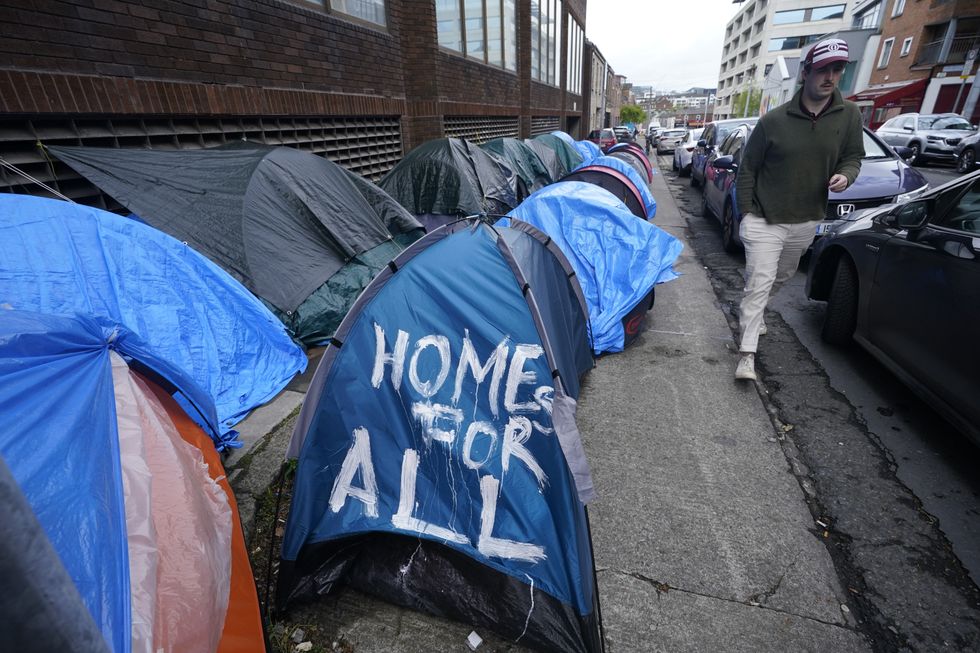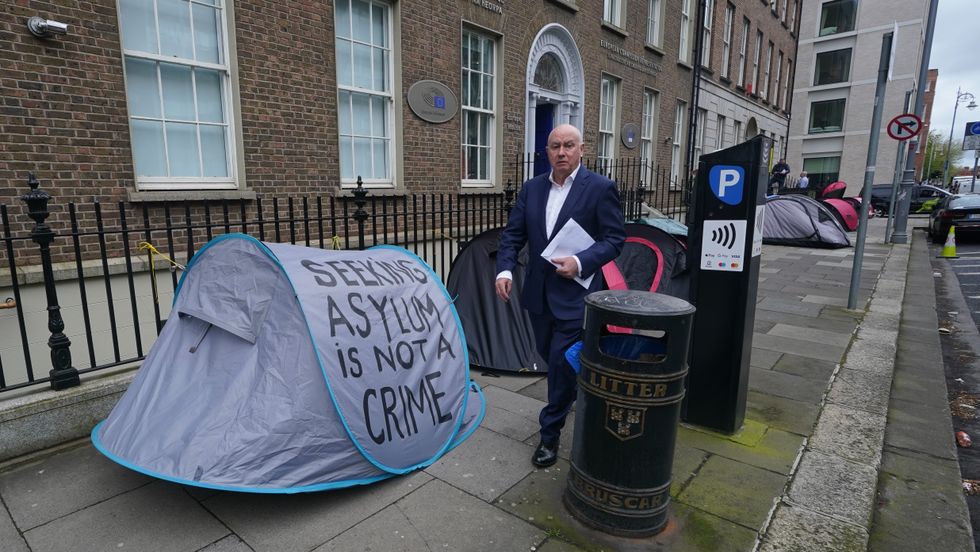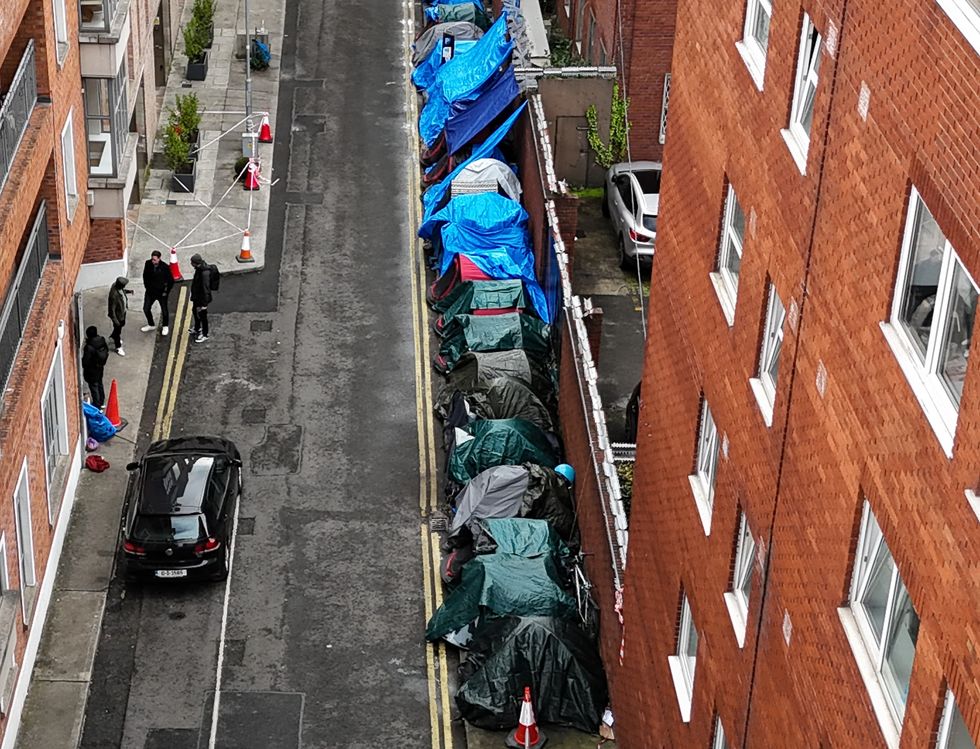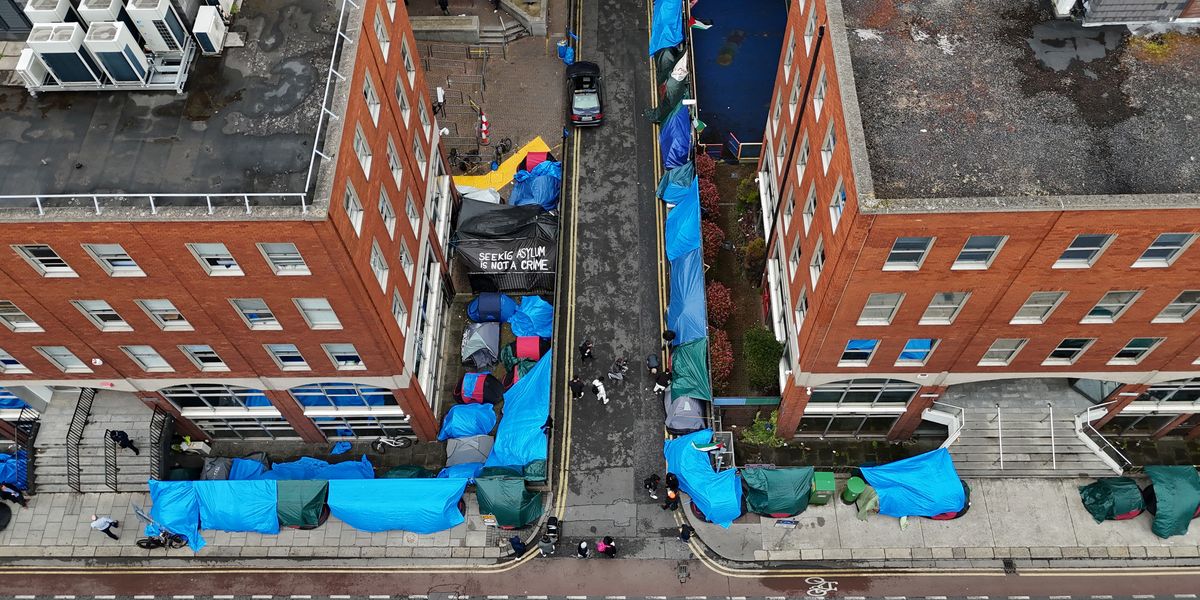People in Dublin have set up a “tent city” around the asylum processing centre amid a row between the UK and Ireland over migrants.
The makeshift accommodation, consisting of dozens of tents sprawled around the International Protection Office, some daubed with the messages “we are not subhuman” and “homes for all”.
Pictures of the sprawling complex emerged as Rishi Sunak yesterday slapped down Ireland’s plan to return migrants who have crossed the border to avoid being sent to Rwanda, saying that Britain is not “going to start accepting returns”.
According to the Irish Examiner, there are around 1,700 homeless asylum seekers in Ireland.
Migrants in Dublin have made a a makeshift encampment around the city’s asylum processing centre
PA
According to the Irish Examiner, there are around 1,700 homeless asylum seekers in Ireland.
The tents are packed tightly together with limited personal space, with migrants without access to sanitary facilities.
The complex, described by the publication as a “tent city” was dismantled in March, however, migrants quickly began returning to the site to pitch their camps once more.
It comes amid an escalating row between Dublin and Westminster over the Irish government’s plans for new legislation to enable asylum seekers who cross the border from Northern Ireland to be sent back to Britain.
LATEST DEVELOPMENTS:

The makeshift accommodation consists of dozens of tents sprawled around the International Protection Office
PA

It comes amid an escalating row between Dublin and Westminster over migrants
PA
Speaking ahead of a lunchtime press conference yesterday, Downing Street said it is up to the UK Government to decide who is allowed to enter the country, despite any legislation the Irish government may pass.
The Prime Minister’s official spokesman said: “Even if Ireland was to pass legislation, it is up to the UK Government to decide who we do and don’t accept into the country and, clearly, we aren’t going to start accepting returns from the EU just as the EU doesn’t accept asylum returns from the UK to France.”
The Republic of Ireland had been planning to push through emergency legislation this week to let it send back migrants to Northern Ireland – but UK Government sources slammed the plan, insisting they would not agree to any deal unless the EU also agreed to let Britain do the same to ‘small boats’ migrants in the English Channel.
Ireland’s justice minister, Helen McEntee, had raised concerns over a surge in asylum seekers across the Northern Irish border with over 80 per cent of those in the Republic now coming from the UK.
She called for “fast processing”, adding: “My focus as minister for justice is making sure that we have an effective immigration structure and system.”

The tents are packed tightly together with limited personal space, with migrants without access to sanitary facilities
PA
McEntee continued: “That’s why I’ll have emergency legislation at cabinet this week to make sure that we can effectively return people to the UK, and that’s why I’ll be meeting the Home Secretary to raise these issues on Monday.”
But Home Secretary James Cleverly backed out of the meeting citing diary clashes. Instead, Northern Ireland Secretary Chris Heaton-Harris met with Irish officials yesterday.
Speaking at a joint press conference yesterday afternoon following a British-Irish Intergovernmental Conference (BIIGC), Heaton-Harris said: “Any agreement on returns, we’ve been told all the way through that the UK must deal with the European Union as a whole entity, so anything on returns has to be dealt with one that basis.
“And we are working on that with our European partners. Because this is a shared endeavour to try and stop criminal gangs illegally importing, and exporting people. Human trafficking people across the continent of Europe, into the UK and to Ireland.”
He added: “We will work with everybody and anybody to try and solve this problem, but we do know we have to work with our European partners.”

